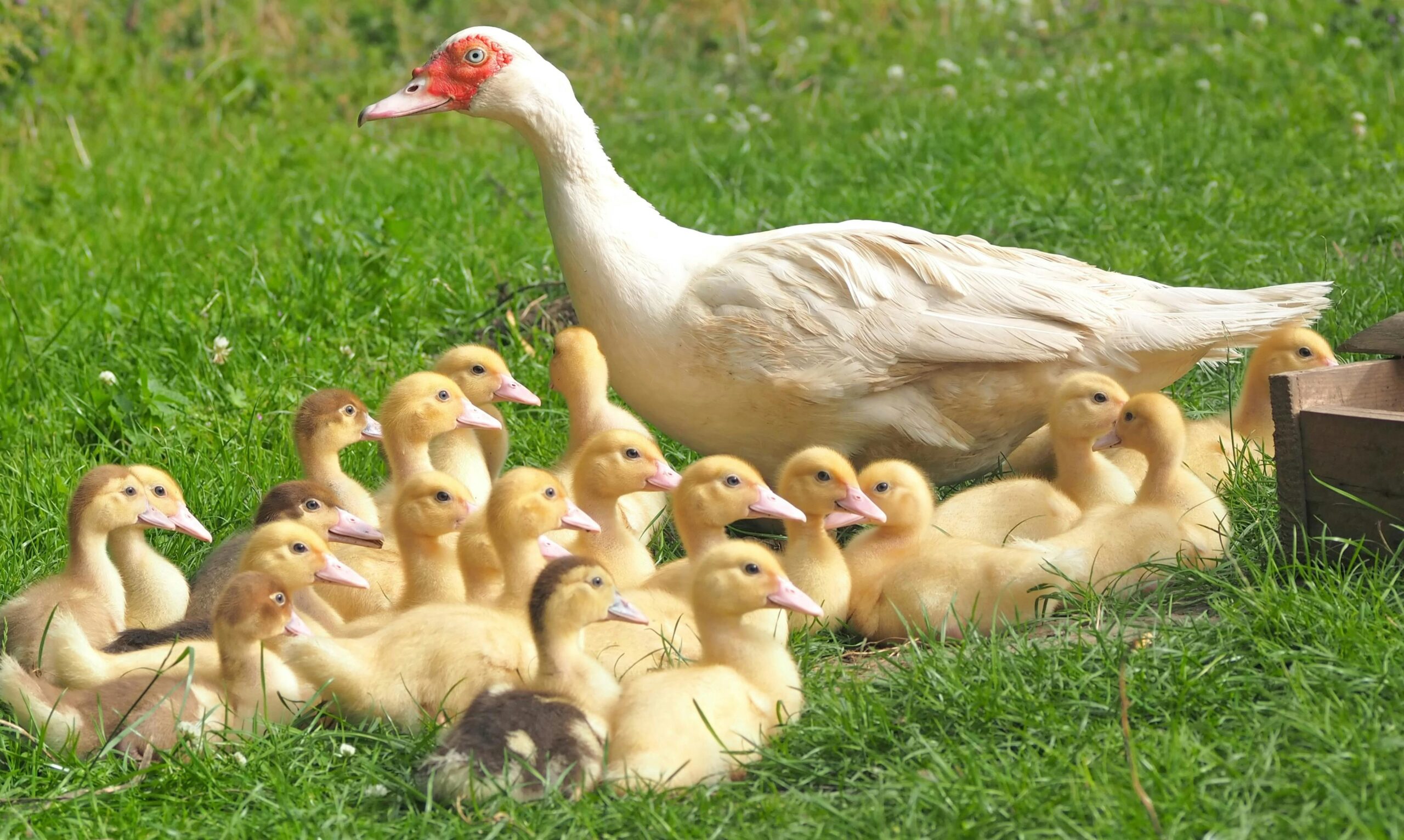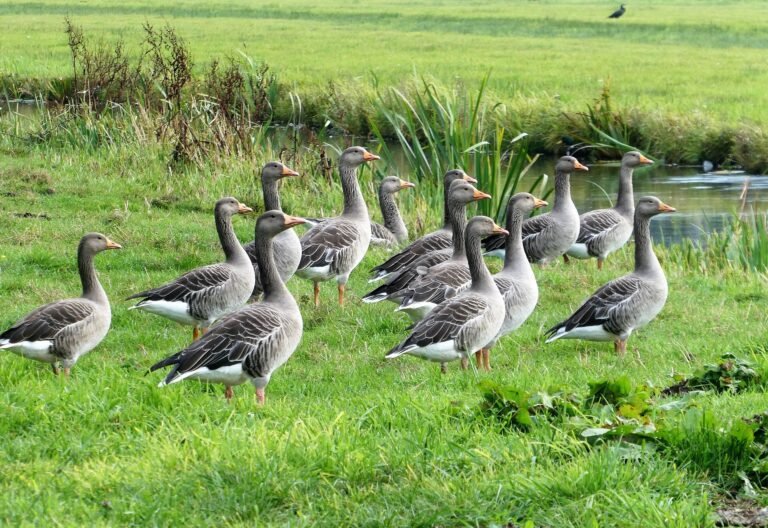Duck Lifespan: How Long Do Ducks Live?

Hey everyone, welcome back to Feathered Mates! Today I will talk to you about Duck Lifespan: How Long Do Ducks Live?
Ducks are fascinating creatures that have captured the interest of bird enthusiasts, farmers, and wildlife lovers alike. One of the most common questions about these waterfowl is: how long do ducks live? Understanding the lifespan of ducks depends on several factors, including species, habitat, diet, and whether they are wild or domesticated. Let’s dive into the details.
Here are the things you will learn about through this guide: pet duck, duck life cycle, duck lifespan, average lifespan duck, how long does a duck live or how long do ducks live , wild duck lifespan, yellow duckling lifespan, domestic duck life cycle, etc.
The Duck Life Cycle
Understanding the duck life cycle is key for anyone interested in raising ducks or simply learning about these fascinating creatures. From egg to adult, ducks undergo several stages of development, each with unique characteristics and needs. Here’s a breakdown of the typical duck life cycle and what happens at each stage:
1. Egg Stage
The life cycle of a duck begins with the egg. Female ducks, known as hens, lay eggs, typically in a hidden nest near water. A fertilized duck egg has a hard outer shell and takes about 28 days to hatch. During this time, the duck embryo develops inside the egg, drawing nourishment from the yolk. The temperature and humidity levels of the environment are crucial for proper development.
2. Duckling Stage
Once the egg hatches, a duckling emerges. Ducklings are tiny, fluffy, and covered in soft down feathers, making them highly vulnerable. During the first few weeks, they rely on their mother for warmth, protection, and feeding. Ducklings are born with the instinct to swim, but they must first learn how to find food and explore their surroundings. They typically feed on small insects, algae, and grains.
3. Juvenile Duck Stage
As ducklings grow, they shed their down feathers and begin to grow their first set of juvenile feathers. At this stage, ducks start to develop more independence. Juvenile ducks are learning essential survival skills, such as foraging for food, swimming, and avoiding predators. They also begin to form social groups and often stay close to their mother and other ducklings during this stage.
4. Adult Duck Stage
By the time ducks reach adulthood, they are fully feathered and capable of flying, migrating, and reproducing. Adult ducks typically develop their full color and characteristics, with males often having brighter plumage for attracting mates. This stage marks the start of the reproductive cycle, as mature ducks mate and lay eggs, continuing the cycle of life. Female ducks usually lay eggs once a year, and the cycle begins again.
5. How Long Do Ducks Live
The lifespan of a duck can vary depending on whether it is wild or domestic. Wild ducks typically live around 5 to 7 years, while domestic ducks can live up to 12 years or longer with proper care. The life cycle of a duck can therefore span a decade or more, with each stage offering unique challenges and milestones.
Duck Lifespan
Ducks have a lifespan that varies greatly depending on their species, environment, and level of care. In the wild, ducks typically live between 5 to 10 years, although some species, like mallards, can survive up to 15 years under favorable conditions. Wild ducks face numerous challenges, such as predation, habitat loss, and diseases, which often shorten their lifespans. On the other hand, domesticated ducks can live longer, averaging 10 to 15 years, especially when provided with proper nutrition, a safe environment, and regular health care. Factors such as genetics, diet, and protection from predators all contribute significantly to a duck’s longevity, making care and habitat management critical for their well-being.
Factors Influencing Duck Lifespan
Several factors can significantly impact how long a duck lives:
Wild vs. Domestic: Wild ducks and domestic ducks differ in their behavior, habitat, and relationship with humans. Wild ducks, such as mallards, live in natural environments like lakes, rivers, and wetlands. They are independent, migratory, and rely on their instincts for survival. Wild ducks forage for food, build nests in hidden areas, and often travel long distances during seasonal migrations. They are wary of humans and typically avoid close contact.
Domestic ducks, like Pekin and Khaki Campbell, have been bred over generations for farming purposes, such as egg production, meat, or companionship. Unlike wild ducks, domestic ducks are less migratory and tend to stay in one location, often living in controlled environments like farms or backyards. They are more accustomed to human interaction and can be friendly and tame. Domestic ducks are usually more dependent on humans for food, care, and shelter, making them easier to handle and train than their wild counterparts.
Average Lifespan of Ducks
The lifespan of a duck varies widely depending on the species and environment. On average:
Wild ducks generally live between 5 to 10 years in the wild. However, some species, such as mallards, have been known to live up to 15 years under optimal conditions.
Domesticated ducks often live longer, with an average lifespan of 10 to 15 years, provided they receive proper care, a healthy diet, and protection from predators.
Factors Affecting Duck Lifespan
Several key factors influence how long ducks live:
- Species
Different species of ducks have different lifespans. For example, mallards, one of the most common species, can live up to 15 years, while smaller species like teal may have shorter lifespans of around 5 to 8 years.
- Habitat
Ducks living in the wild face many challenges, such as predation, habitat loss, and harsh weather conditions. Those in protected or managed habitats are likely to live longer due to fewer threats.
- Diet and Nutrition
A well-balanced diet is crucial for a duck’s health and longevity. Wild ducks forage for a mix of aquatic plants, insects, and small fish, while domesticated ducks thrive on commercial feed supplemented with fresh greens and grains.
- Predators and Threats
Predation is one of the primary reasons wild ducks have shorter lifespans. Foxes, raccoons, hawks, and even humans pose significant threats. In urban areas, pollution and habitat destruction can also reduce their life expectancy.
- Health and Veterinary Care
Domesticated ducks benefit from regular health checks and vaccinations, which significantly increase their lifespan. Conversely, wild ducks are more vulnerable to diseases such as avian influenza and botulism.
Record-Breaking Ducks
The oldest known wild duck was a mallard that lived to be 27 years old. In captivity, some ducks have reportedly lived over 20 years, demonstrating the potential longevity of these birds when they are well cared for.
Tips for Extending a Duck’s Lifespan
If you own ducks or manage a flock, here are some tips to ensure they live long, healthy lives:
Provide a safe environment: Protect them from predators with secure housing and fencing.
Offer proper nutrition: Feed them a balanced diet with high-quality commercial feed and fresh vegetables.
Clean water access: Ducks need clean water for drinking and bathing to maintain their health.
Regular health care: Monitor for signs of illness and consult a veterinarian when necessary.
Social interaction: Ducks are social animals and thrive in groups. Ensure they have companionship.
Wild duck lifespan
The lifespan of a wild duck typically ranges from 5 to 7 years, although many do not survive past their first year due to the numerous risks they face in their natural environment. Predation by animals such as foxes, hawks, and raccoons, as well as accidents, harsh weather, and disease, contribute to the high mortality rate in young ducks. However, ducks that make it past their vulnerable early stages can live longer. In favorable conditions, some wild ducks can reach up to 10 years or more. Their ability to adapt to different environments and migrate for seasonal changes can help extend their lifespan, but even adult ducks face challenges, such as hunting and loss of habitat. Overall, survival rates in the wild are lower compared to domestic ducks, but the natural world also offers opportunities for wild ducks to thrive under the right circumstances.
It can be said that birds are very peaceful creatures and they always fascinate us with their behavior. So, As a responsible bird owner, acquiring the necessary knowledge about birds is of course very important. Every bird owner should understand and review accurate information about birds and guide birds properly. Hope we have helped you enough to know Duck Lifespan: How Long Do Ducks Live. Stay with us to learn about the right bird selection, Birds care, birds nests and all things related to birds. Click here to know what do ducks eat. May the relationship between you and your pet become stronger.




One Comment